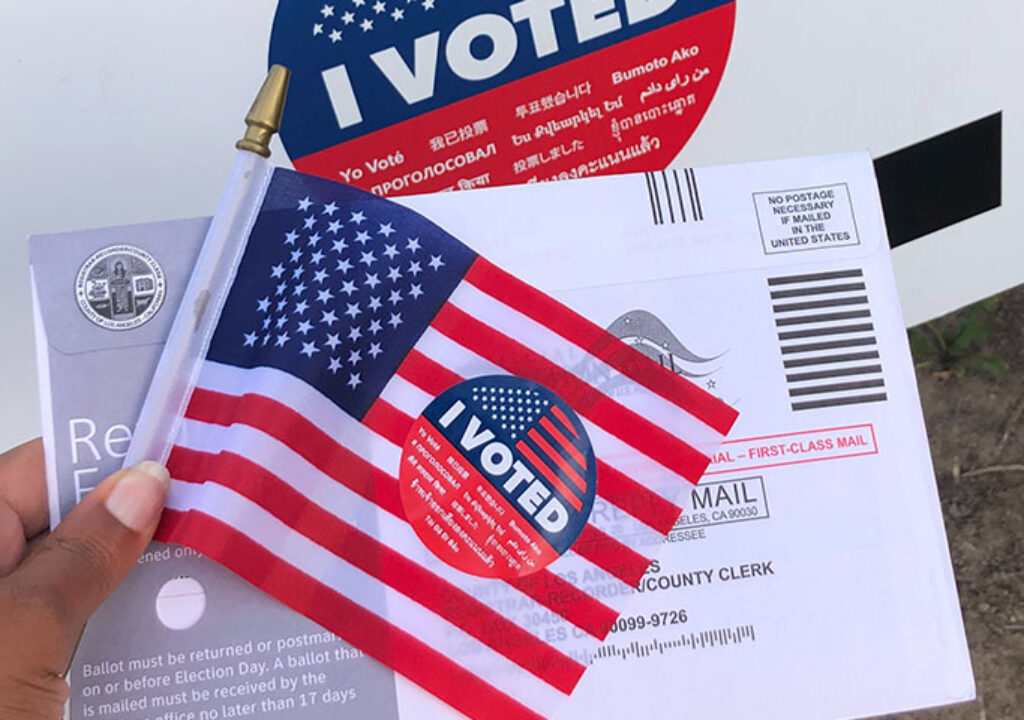How Pro-Trump Local News Sites Keep Pushing 2020 Election Misinformation
LISTEN AND READ THE FULL REPORT FROM NPR HERE.
If you don’t follow politics in Georgia closely — or even if you do — you might be forgiven for not knowing much about The Georgia Star News.
Founded just after the November election when President Biden narrowly flipped the state by about 12,000 votes, it looks like a regular news website with a lifestyle section, a widget for the weather and stories about local and national goings-on.
But the site is more than just a local news outlet. It’s part of the Star News Network — an expanding network of pro-Trump sites seeking to influence local politics with conservative opinion by mimicking the look and feel of local newspaper sites. The group operates eight state-focused news sites, including in key Electoral College states such as Michigan, Arizona, Ohio and Florida.
Steve Bannon, a former strategist for former President Donald Trump, described The Georgia Star News in a radio interview as content “you can’t get anywhere else.”
“We’re not Conservative Inc.,” he said. “It’s very populist, it’s very nationalist, it’s very MAGA, it’s very American First.”
Pro-Trump media ecosystem
The Star News sites are part of a larger pro-Trump media ecosystem that emerged over the course of his four years in office. Since last year’s election, some of those sites have spent months churning out false content suggesting Trump won the election and claiming that massive electoral fraud will be uncovered.
Many of the Star News sites have been around for a while, but the 2020 election — and an intense focus on swing states like Georgia — has helped the sites’ stories reach a much a larger audience.
Georgia’s fledgling website gets a boost from publisher John Fredericks’ talk radio show that has featured numerous figures from Trump’s orbit, including Bannon and former campaign manager Corey Lewandowski. His show also regularly features Georgia Republican politicians who have pushed false claims of election fraud or are challenging those who did not work to overturn the election.
Fredericks, who most recently hosted his talk show from Virginia, came to Georgia ahead of last January’s dual Senate runoffs as part of an effort by conservatives (and conservative media) to support then-Sens. Kelly Loeffler and David Perdue’s reelection campaign. He also hosts a TV show on the Real America’s Voice network that also features Bannon’s “War Room: Pandemic” podcast popular with many election skeptics.
So there was a ready-made audience when the Georgia Star published a misleading story mid-June questioning the legitimacy of nearly 20,000 absentee ballots placed in Georgia drop boxes — slightly more than the margin of Biden’s victory there.
The story said that Fulton County, which includes Atlanta, could not produce crucial chain of custody documentation for ballots returned in drop boxes, suggesting that the ballots may not have been legitimate.
Days later, county officials were able to find all but eight of those forms, said all the ballots were accounted for — and noted that Georgia’s votes were counted three different times in November.
“The most explosive thing”
But in the conservative alternate media sphere, the story began to pick up steam. On Fredericks’ radio show, Bannon called it “the most explosive thing that I think has happened in the entire process.”
From there it ricocheted across the pro-Trump mediasphere to TV networks like One America News and conspiracy sites such as The Gateway Pundit.
But the story was not limited to the fringe of Republican politics: several pro-Trump lawmakers and primary challengers in Georgia demanded an investigation. Republican Secretary of State Brad Raffensperger — himself a frequent target of misinformation, attacks and death threats because of these sites — did too. That led mainstream outlets to run with Raffensperger’s response, pushing the story further into the spotlight.
LISTEN AND READ THE FULL REPORT FROM NPR HERE.


How Pro-Trump Local News Sites Keep Pushing 2020 Election Misinformation - TIDEWATER
August 26, 2021 @ 11:38 pm
[…] Source link […]